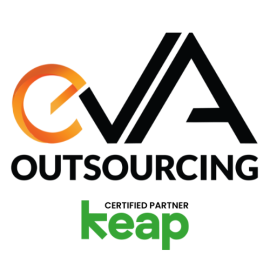Learning the difference between outsourcing and insourcing can help you think of what you can apply to your specific needs. Some businesses prefer outsourcing for further work progress, while other business owners stick to insourcing for various reasons. The outsourcing firm will be serving a variety of customers, they will need a uniform procedure that will apply to all of them. This implies that any modification or things you do differently from them will almost certainly be thrown out the window. Let’s assume your company obtains a new client that wants their accounts payable handled in a certain way. An internal employee can respond quickly to requests, unlike an accounts payable firm, which requires contacting a manager for changes.
Insource vs Outsource: What Are the Disadvantages of Insourcing?
While there are several benefits to outsourcing, it also has several drawbacks.
To begin with, the cost of insourcing might be significantly higher than the cost of outsourcing in the long term. It is costly to recruit, hire, and then train a new employee. Continuing to do so as your demands increase might be costly and time-consuming.
You don’t have to spend all of the fees connected with employing and training someone when you use an outsourcing business. The more work you have, the more you contract with the outsourcing business and increase your monthly cost with them. So, if you have 60 hours of accounts payable work each week, you may be assured that the outsourcing business can handle it.
If you want to outsource, you’ll have to choose between employing one person to perform the job and paying them 20 hours of overtime per week or hiring two full-time workers who don’t have enough work to work a full 40-hour week.

And as your firm grows, this will become more of an issue. Assume you require a large number of accounts payable workers to fulfill your company’s task.
Do you need to recruit a manager to oversee that group? Will you need to give continuous training to ensure that their abilities meet industry standards? In certain cases, the scalability of an insourced team is just not as straightforward or adaptable as contracting with an outsourced firm.
Insourcing vs. Outsourcing: What Are the Benefits and Drawbacks of Outsourcing?

When it comes to the insourcing vs. outsourcing argument, the advantages of insourcing are generally the disadvantages of outsourcing. And the other way around.
While insourcing gives you greater control, gives your workers a sense of ownership, and gives you more customization and flexibility for fast adjustments, outsourcing companies are unlikely to offer those capabilities.
Because they are not devoted to your company, the outsourcing firm’s workers will not take the same pride in the job that they do for you. This may not be the case if you locate a fantastic outsourcing business that is laser-focused on client satisfaction. But it’s true a lot of the time.
You are not the only client of the outsourcing business. As a result, they don’t have the same ability to respond rapidly enough to alter or customize a procedure to your company’s specifications. Although each outsourcing firm is unique, this is a common issue when outsourcing specific business activities.

Insourcing has drawbacks. If your firm is growing fast, the costs, training requirements, and scalability can soon spiral out of control. In the insource vs. outsource argument, outsourcing comes out on top.
Outsourcing is a fantastic way to cut expenses in the long run. Because of the number of resources they have on hand, they can scale considerably more readily than insourcing. Adding 20 hours to your weekly work schedule won’t bother your outsourcing firm, but it will put a burden on your internal staff.

Outsourcing firms are also in charge of their training. So you don’t have to worry about onboarding a new employee to a task when you need to get something done.
Furthermore, because the outsourcing firm specializes in that particular business process or activity, they are likely to have expert-level expertise. Hiring someone(s) with this degree of experience in-house may be too costly for your business’s bottom line, therefore it makes sense to rely on an outsourcing firm with that expertise.
The Final Say on Insourcing vs. Outsourcing
When your organization is debating whether to insource or outsource, it’s critical to weigh all of your alternatives and choose the best one for your business goals. While insourcing gives you greater control and flexibility, outsourcing is more scalable and cost-effective.
Now, if you’re looking for a partner to help with your outsourcing needs, eVA Outsourcing can be your best choice. Shoot us a message to get you started!
Ready to Boost Your Productivity?
Contact us now or Book a free discovery call to see how we can support your business goals



